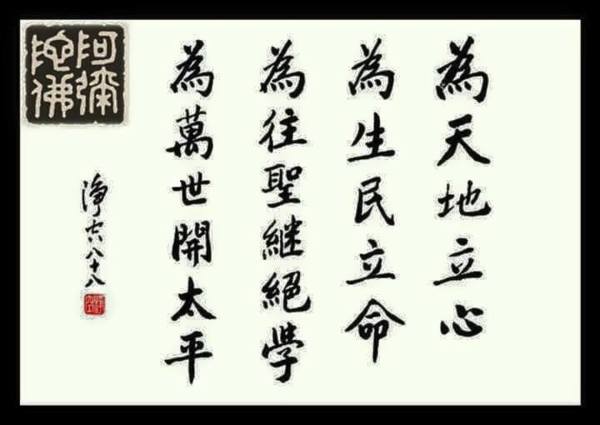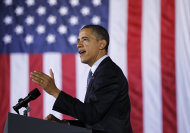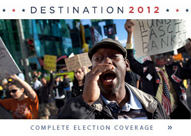WASHINGTON – President Barack Obama insisted Tuesday that the country is not at risk of slipping into a double-dip recession, but he conceded he does not know whether a sudden slowdown in job growth is a blip or an indication of a longer, more worrisome trend. The president said the nation is on a solid but uneven path to recovery and the key is to "not panic."
"I am concerned about the fact that the recovery that we're on is not producing jobs as quickly as I want it to happen," Obama said at a joint news conference with visiting German Chancellor Angela Merkel. "Obviously we're experiencing some headwinds."
Obama spoke amid a wave of short-term negative economic news, including a sharp drop in the number of jobs added in America in May after employment growth had shown strong signs for three straight months. Obama said the economy is rebounding well from a disastrous blow dating to 2008 even though millions still endure hard times. He promoted continuing steps already taken, like tax breaks for business investment, and his familiar longer term agenda of debt reduction and spending on education, infrastructure and energy research.
Given the jittery times, a batch of economic data can make people wonder, "Well, are we going to go back this terrible crisis?" Obama said. "And that affects consumer confidence, and it affects business confidence, it affects the capital market. And so our task is to not panic."
The economy is the overarching issue as Obama heads into a 2012 re-election campaign, and a Washington Post-ABC News poll released Tuesday found that disapproval with how Obama is handling the economy and the deficit has reached a new high.
Obama also said he was concerned that a Greek default on its debt could cause enormous complications for the U.S. economy but he signaled that it was a problem for Europe to solve, adding that Germany and other European countries needed to act together to help Greece stabilize its economy. "We think it would be disastrous for us to see an uncontrolled spiral and default in Europe because that could trigger a whole range of other events," he said.
For her part, Merkel weighed in on the United States' own struggles in reducing its debt, saying "I think each and everyone ought to deal with his or her own problems."
"We in Europe have our hands full already with what we need to do," she said. "And I'm absolutely convinced that as we shoulder our responsibility and meet our responsibility, so will the United States of America."
Merkel's visit is her sixth trip to the United States since Obama took office. Later, Obama was to treat Merkel to a night of high pomp at the White House, awarding her the Presidential Medal of Freedom during a black-tie dinner. The gestures appear aimed at boosting a relationship that has seemed more cordial than close.
Obama sought to put to rest any suggestion his relationship with Merkel was in any way strained, praising Merkel's "pragmatic approach to complex issues" and saying that "it's just fun to work together."
Merkel, likewise, depicted a close relationship, although she acknowledged that "sometimes there may be differences of opinion."
Obama and Merkel, for example, have had differences on Libya, after Germany abstained in the U.N. vote that authorized a no-fly zone over Libya and kept its troops out of the NATO-led operation to enforce it.
Obama, without mentioning that, said Germany's deployment of resources in Afghanistan had allowed other NATO allies to increase support for the Libyans, and he stressed that both he and Merkel believe Libyan Leader Moammar Gadhafi has to be removed from power.
Obama said he expects the Germans to play a central role in Libya after Gadhafi is gone.
"There is going to be a lot of work to do when Gadhafi does step down, in terms of getting the Libyan people back on their feet, economic, political work that is going to have to be done," Obama said. "My expectation is going to be that there will be full and robust German support."
On Afghanistan, where Germany has 5,000 troops stationed mostly in the volatile north, Merkel said the two leaders were committed to stabilizing the country not just militarily, but also in terms of bolstering its civil society, adding that "We will not abandon them."
"We wish to go in together, out together," she said of U.S. and German troops. Both leaders face significant opposition to the war from their people at home.
The U.S. has roughly 100,000 troops in Afghanistan, and Obama renewed his pledge to begin a significant drawdown of U.S. troops this summer. Germany hopes to start a gradual troop withdrawal at the end of the year..
On another world trouble spot, Obama said that Iran's nuclear program remains a "very serious concern" for the U.S. and Germany. He threatened greater sanctions against Tehran pending the outcome of a meeting of the International Atomic Energy Agency this week.
Obama said that if the agency determines again that Iran is continuing to ignore its international obligations, "then we will have no choice but to consider additional steps, including potentially additional sanctions, to intensify the pressure on the Iranian regime."
Obama didn't commit to making a presidential visit to Berlin anytime soon, but recalled having had "fun" giving a speech there when he ran for president in 2008, and drew adoring throngs. Merkel had refused his request to speak in front of the Brandenburg Gate, a Cold War symbol that previous American presidents have used as a backdrop. He spoke at a nearby monument instead.
Merkel hinted it might be different next time, quipping, "I can promise that the Brandenburg Gate will be standing for some more time."
Obama is using both pomp and quiet moments to strengthen his relationship with Merkel. The two leaders met for a quiet dinner in the city's historic Georgetown neighborhood at an elegant restaurant modeled on a country inn.
Merkel comes at a time when she is suffering a loss of popularity amid problems with her coalition partner and a backlash from Germans upset about their country's large contribution to the European financial bailout of Greece. Her decision this month to halt Germany's nuclear energy production by 2022, however, has given her a small boost in a country that long has had a strong anti-nuclear movement.
Merkel also is in the midst of managing the response to an E. coli outbreak linked to raw vegetables that has killed at least 24 people and sickened more than 2,300, most in Germany.
Though Merkel's trip is not a "state visit," because she is the head of Germany's government, not its head of state, it has almost all the trappings. The only difference was that Merkel received a 19-gun salute during the White House arrival ceremony, while a head of state gets 21.
Obama awarded Merkel the Medal of Freedom last year but did not have an opportunity to present it to her. At the time, Obama spoke about her youth in communist East Germany and her dreams of freedom that were not realized until the Berlin Wall came down in 1989. Obama said her story was an inspiration to people around the world.


 本城市首頁
本城市首頁








































